Jayan's memories live on though Malayalam cinema lost its first action hero four decades ago

Mail This Article
When Jayan insisted on going for the fourth retake of the fatal climax fight scene in Kolilakkam, which took the actor's life, he was just 41 and rumours about his marriage plans were flying, pairing him with an unnamed popular actress in Tamil and with an air hostess. The fight-and-capture sequence in which the hero's action moves from a moving bike to a helicopter that is taking off marked the last stunt of Malayalam cinema's first action hero but over the years it made Jayan's imprint on the action genre unmatchable.
In Jayan's mind, there was no substitute for self-performed thrills by the hero even though the infrastructure and safety nets on the sets were not as good as they are today. "Dupes" were used widely, but Jayan preferred to do his stunts without a double. The perfectionist in him could not move on to the next shot even after the Kolilakkam director P N Sundaram had okayed the first take. He kept improvising with each shot and in the fourth one, the helicopter lost its balance and crashed with Jayan hanging on to it below.
Jayan had performed numerous acrobatic stunt sequences under challenging circumstances before Kolilakkam. Kamal Haasan had recounted his first experience with Jayan in Aadyapaadam in which he was the hero and Jayan was the villain. Jayan had advised him not to take risks while doing stunts, particularly in a scene in which he had to jump from one compartment of a goods train to another and said he would not do it without support from a trained dupe, but Kamal said unfortunately Jayan soon fell into the same trap of perfectionism so much so that he risked his safety every time to give his director a shot that is as clinically precise as possible. Such uncompromising dedication and passion made audiences throng the theatres everytime a Jayan film released. The actor enjoyed so much of love across Kerala and Tamil Nadu that the viewers rushed out in disbelief and uncontrollable grief when the news of the actor's death was announced in theatres where his movie Deepam was playing.
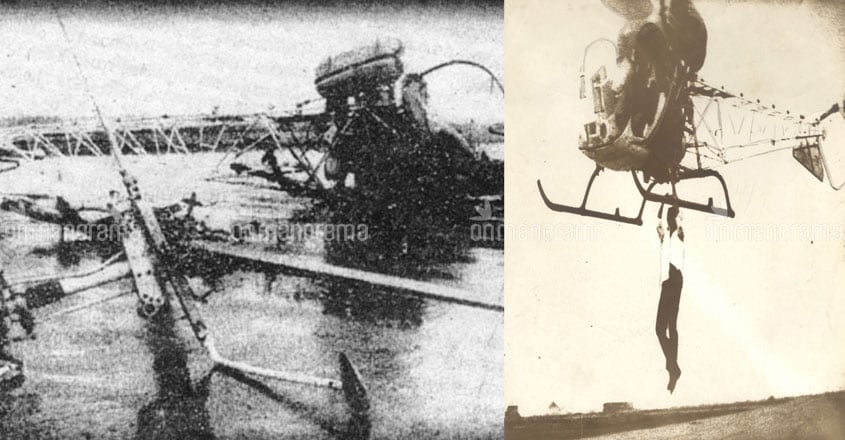
It was actor Jose Prakash who rechristened his co-star Krishnan Nair as Jayan with extraordinary prescience while they were acting in Shapa Moksham (1974). It heralded a phase of victories for the brawny youth after he entered the film world with the help of his star cousin Jayabharathi accepting whatever minor role that was offered to him. Jayan had completed schooling and over 15 years of service in Indian Navy before he started pursuing his passion for acting seriously. Soon after Shapa Moksham, which is credited as his debut movie, he persevered for about five years till he shot to superstardom with a negative role Sarapancharam in 1979, after appearing in 70-odd films in big and small roles.
The clips of his stunts and famous dialogues generate millions of views on YouTube and the new generation watches his films online. What makes Jayan appealing to filmgoers of different generations even today? It is the pleasure of watching the man perform pure action with unbridled passion. Take the idol robbery scene in Prabhu (1979) for example, which can be called the Mission Impossible moment in Malayalam cinema, Jayan enters the building in which an idol is guarded with high-tech surveillance through the ceiling and lifts it undetected by the police personnel. Jayan performing the clean heist all by himself turned out to be such a superstar trope that directors have been rehashing it their films even now. Jayan who had to hang upside down on a rope for long for the scene, had joked that he felt like his intestines would come through his mouth. In those days, in an era without television or mass promotions, Jayan holding on to a ship crane and jumping to a ship, breaking a brick wall riding a motorbike, landing down breaking a glass ceiling, or performing stunts riding a horse or by jumping on top of a train used to pull crowds to theatres on the back of strong word-of-mouth publicity.
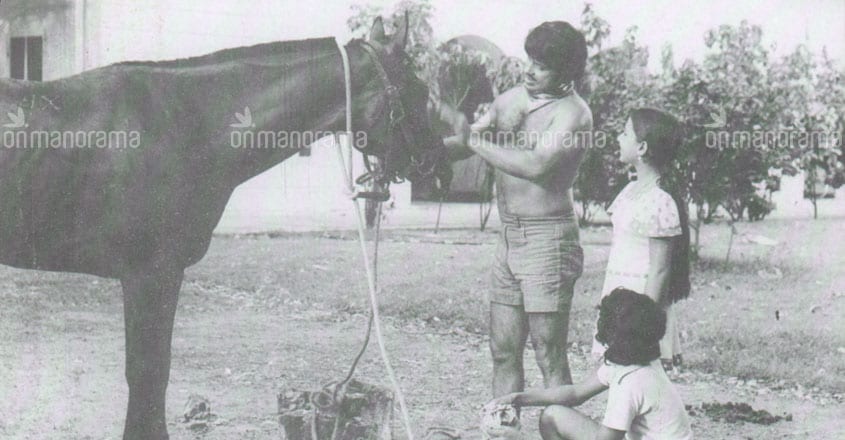
In the box office, Jayan delivered full 'paisa vasooli' for his producers and fans. Jayan's films were had a wide appeal, ranging from children and youth to mature audiences. Some of those hits that ran in packed houses include Karimbana, Manushya Mrugam, Love in Singapore, Panchami, Thadavara, and Chandrahasam. Even during the peak of his career, Jayan never rested on his laurels. His co-workers remember him for his work ethics, commitment and warmth. Kamal Haasan fondly remembers the days Jayan used to wake him up at 4 in the morning and make him do workouts when they were shooting together for a film. His unique style of dialogue delivery and punchlines in movies such as Angadi give goosebumps even on this day. No Malayali would forget the legendary English punchline by the angry labourer in Angadi "May be we are poor, coolies, trolly pullers...but we are not beggars!"
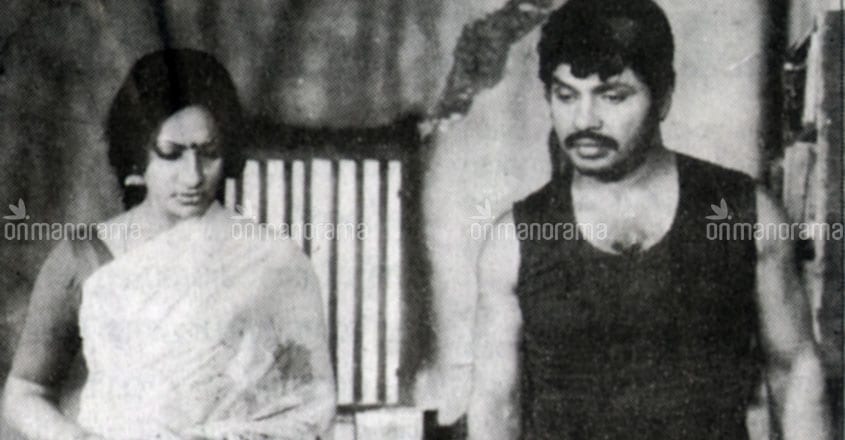
As a youth icon, Jayan made his own fashion statement with bell bottoms and two-toned long collar shirt that became a huge trend among his fans. Thanks to his screen presence and towering popularity, most of the productions of the time were mostly interested in selling his machismo avatar, toned physique and style. Fight scenes with him sporting a headband and showing off his bare torso were crowd-pullers of the time. Jayan is widely credited with planting the seeds of a 'gymnasium culture' in Kerala, riding on the aspirations of the youth to build a well-toned body like him.
There are many who remember Jayan mainly through the numerous superhit songs from his films. "Ullasapoothirikal...", "Kannum kannum thammil thammil...", "Kombil kilukkum ketti...", "Cham chacha...", and "Poomaanam poothulanje..." are some of the tunes that Jayan's films had made loop-worthy.
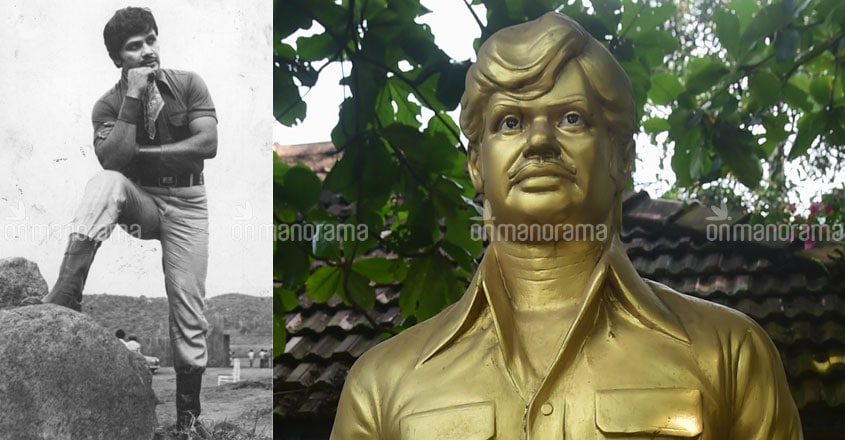
Even at the peak of his stardom, Jayan did not think twice before signing multi-starrers. Prem Nazir as the reigning superstar had reportedly offered to act in a smaller role with Jayan as a token of gratitude for starring with him in a number of films in smaller roles.
After Jayan vacated the scene, there were attempts to continue his legacy by bringing in lookalikes and by launching his own brother named Ajayan but none of them could fill the void that Jayan had left in Malayalam cinema. Even after nearly four decades of his death, his legacy as an action hero and style icon lingers on.
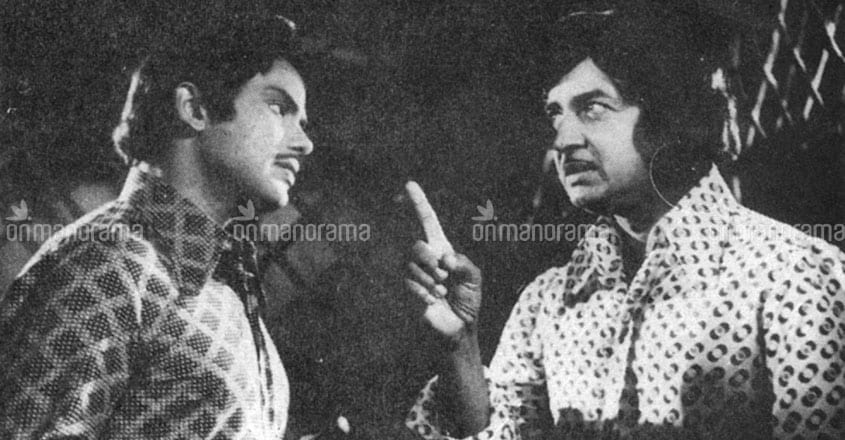
(Dress Circle is a weekly column on films. The author is a communication professional and a film enthusiast. Read his past works here.)

